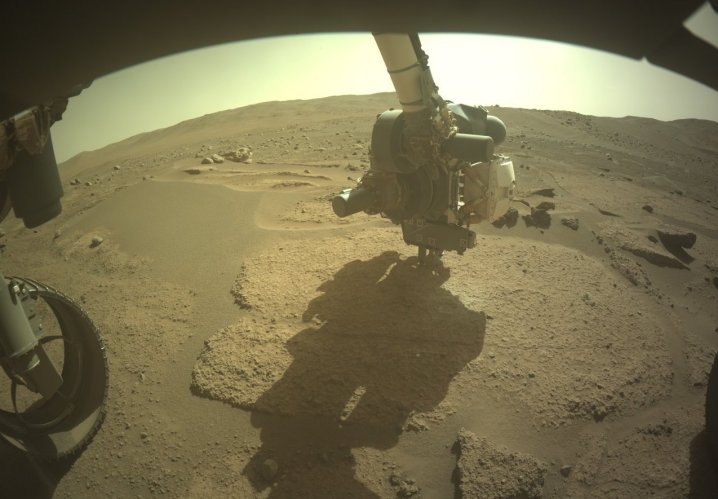NASA’s Perseverance rover is continuing to explore Mars’ Jezero Crater in its search for evidence of ancient microbial life on the distant planet.
The vehicle — NASA’s most technologically advanced rover to date — arrived on the red planet in February 2021 in a breathtaking landing captured by high-definition cameras.
In its most recent communiqué sent via X (formerly known as Twitter), Perseverance shared an image showing its latest point of interest.
“I found this rock in the ancient riverbed here at Jezero Crater,” the rover said in its post, adding that it planned to take a sample and have it sent back as part of the upcoming Mars Sample Return mission, which will allow scientists to take a closer look.

In another post (below), Perseverance showed a close-up of its fascinating find, describing it as having “cool textures and green textures,” with the latter possibly being olivine, a mineral typically found in the interior of planets ,but in this case likely pushed to the surface by ancient volcanic activity. Select the play button on the image to see it come into focus.
Check out these cool textures and green crystals! I grabbed a sample in this spot and am planning to seal it up and keep moving along. So many more places still to see! pic.twitter.com/JDo5EE8fuO
— NASA's Perseverance Mars Rover (@NASAPersevere) August 30, 2023
Finally, NASA’s rover posted a picture of its current location, along with the message: “I’ve had a great time here poking around the ancient riverbed. Gonna wrap up a few tasks and hit the road soon. What’s over this next rise? Let’s find out.”
I’ve had a great time here poking around the ancient riverbed. Gonna wrap up a few tasks and hit the road soon. What’s over this next rise? Let’s find out. pic.twitter.com/JQ5P8a1OTq
— NASA's Perseverance Mars Rover (@NASAPersevere) August 31, 2023
Perseverance isn’t traveling alone on its mission. It has with it a companion in the form of a small helicopter called Ingenuity, which is also continuing to traverse Mars.
Ingenuity started out as a technology demonstration, but performed so well that it now assists the Perseverance team, capturing aerial imagery of the challenging martian terrain that is used to plan safe and efficient routes for the ground-based rover.
NASA has been so pleased with the success of the drone-like aircraft — it’s achieved 56 flights to date — that it’s decided to develop more advanced versions for future missions on Mars and possibly other planets, too.
Together, Perseverance and Ingenuity make a great team, with the ongoing mission already surpassing NASA’s expectations on many levels.


